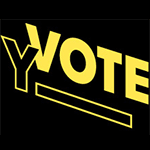Building a Youth Civic Ecosystem in NYC
Mission of NYC Civic Coalition
The NYC Civic Coalition is building a Civic Participation Ecosystem to deepen New York City youth’s knowledge of the electoral system and its impact on their lives and extend their civic participation between election cycles.
The coalition brings together leaders of key civic nonprofits, researchers, evaluators, and funders to:
- Capitalize on New York’s creation of a Seal of Civic Readiness
- Move beyond isolated civic opportunities and activities to create an organized and coherent digital hub that honors civic engagement in and outside of schools
- Activate a broad range of young people in New York City, with a particular emphasis on those from historically marginalized communities
- Work to “certify” and credentialize civic learning for young people to ensure that they receive recognition for what they’ve achieved
- Equip NYC youth with civic agency, identity and efficacy
Why It Matters
Despite the abundance of civic resources in NYC, we lack an infrastructure that makes civic opportunities known and navigable for young people, their families, and their schools and teachers in a systematic way.
This has resulted in:
- A generation of civically isolated young people
- Separate and siloed civic organizations
- Overworked civic educators
- A lack of partnerships between in- and out-of-school programs
In recent years, New York City and State have taken promising steps to support stronger civic participation among young people through:
- Voter pre-registration for 16 and 17-year-olds
- Creation of a Seal of Civic Readiness for high school graduates recognizing proficiency in civic knowledge and experience with civic participation
- A Civics for All initiative by NYCDOE that helps participating schools integrate civics into their curricula and extracurricular activities
However, civic participation among young New Yorkers is still low.
- In 2018, youth voter turnout in New York (16.4%) was the second lowest for all states
- Teens and young adults are consistently the lowest voting demographic
- Only 8% of 16 and 17-year-olds in NYC have pre-registered to vote
- Confidence and trust in our core civic institutions are lower for each succeeding generation with Generation Z (18 – 22-year-olds) citing the most distrust
The time is right to build a much-needed civic ecosystem in New York that instills young people with strong civic identity, agency, and efficacy.
What We Are Doing
To strengthen the civic ecosystem and better meet the civic needs of our city’s young people, the NYC Civic Coalition is:
- conducting a city-wide landscape analysis
- honing in on the knowledge and skills necessary to ensure youth civic readiness for the challenges and opportunities of our time
- continuing to develop connective tissue between organizations in order to achieve collective impact for young people.
- designing a digital Youth Civic Hub that creates a coherent and clear platform for youth civic engagement and the integration of in and out of school learning. (Read about our vision, goals, and timeline for the Hub in these slides and on the Youth Civic Hub webpage)
NYC Civic Coalition Members
18by Vote
Campaign Finance Board, NYC Votes
The Center for Urban Pedagogies (CUP)
Citizens’ Committee for Children
CUNY SPS Youth Studies’ Intergenerational Change Initiative
Democracy Prep Public Schools
Dominicanos US
Do Something
Facing History and Ourselves
Generation Citizen
Girls for Gender Equity (GGE),
Global Kids
Inspiring Minds
Integrate NYC
League of Women Voters of NYC
Mikva Challenge
Neighbors in Action
New-York Historical Society
New York Public Library
Press Pass NYC
Riley’s Way
Sadie Nash Leadership Project
Service Learning Project (SLP)
YA-YA Network
Young Governors
YouthBridge-NY
Youth Power Coalition
YVote
If you are interested in joining the Coalition, or for more information, contact Sanda at [email protected] or Elena at [email protected]
